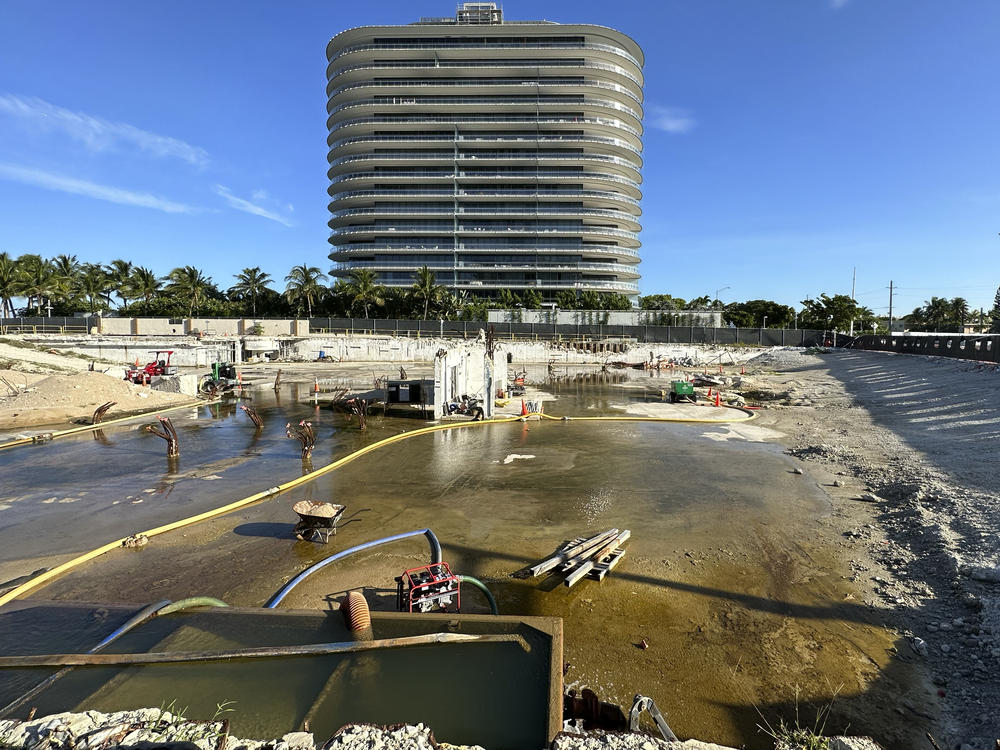Section Branding
Header Content
Investigators narrow search into cause of deadly Florida condo collapse in Surfside
Primary Content
MIAMI — A federal team investigating the causes of the 2021 collapse of a Florida condominium tower continues to focus on construction flaws in the building's pool deck. Ninety-eight people died when the Champlain Towers South condominium came down in Surfside.
A team from the National Institute of Standards and Technology has spent nearly $30 million gathering evidence and testing materials used in the building's construction. In an update Thursday at NIST headquarters in Gaithersburg, Md., investigators said tests show concrete used in the pool deck and in the columns that supported it was weaker than required by building codes.
In addition, because of added weight from planters added to the pool area years later, the deck and columns were subjected to more stress than they were designed for. Because of design flaws, investigators say water from the deck constantly seeped into the garage area under the pool, helping corrode reinforcing steel in the support columns.
But Glenn Bell, NIST's co-lead investigator, says videos also show there was movement in the tower structure itself before the collapse.
"While there is strong evidence that the collapse initiated in the pool deck," Bell said, "we have not yet ruled out a failure initiation in some part of the tower."
NIST is examining at least 40 of what it calls "failure hypotheses," potential causes of the building's collapse.
Investigators detailed numerous areas in which the design and construction of Champlain Towers South failed to comply with building codes when it was constructed in 1981. It was inspected and certified safe by the building's engineer at the time. But NIST investigator Jim Harris said, "Nonetheless, things were missed that way." He suggested building inspections will be among the areas covered in NIST's final report.
"It is a key focus," Harris said, "of what we are looking into."
Bell said testing of materials and other technical work that's part of the investigation should be completed by this summer. He expects to have a draft report on the causes of the collapse ready for public comment in May 2025.
The report will also include recommendations of how to ensure similar building collapses don't happen in the future.
"The whole goal of this investigation is to learn from it," Bell said, "and bring about new improvements in codes and changes in practice." He worries those changes may meet resistance if the investigation, its findings and recommendations aren't credible.
"That's why we're being so thorough," Bell said. "We want these findings to be ironclad. Because the potential for good and positive change to come out of this tragedy is large."

